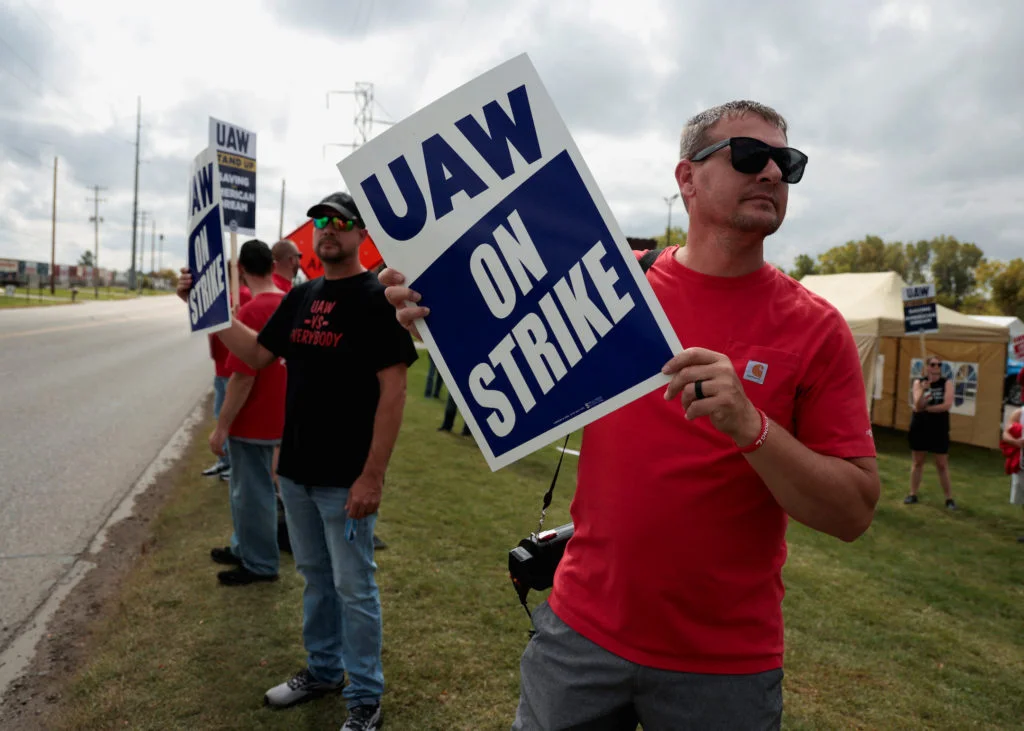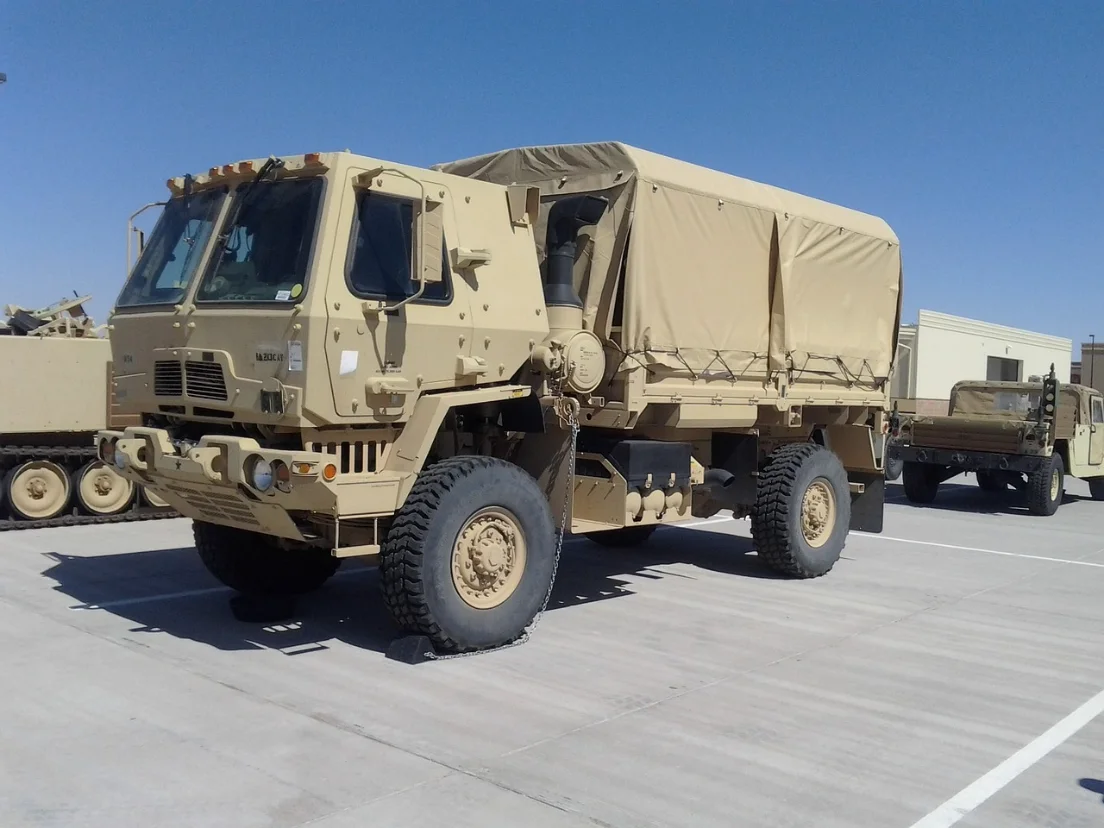Two American fighter jets responded to attacks on American personnel by a group with Iranian support by dropping bombs on weapons and ammunition depots in Syria. Targeting locations utilized by Iran’s Revolutionary Guard Corps and the militia organizations it supports, these strikes were ordered by President Joe Biden.
The Pentagon has also warned that further measures will be taken if attacks by Iran’s proxies persist.
Iran-backed forces have targeted U.S. and coalition soldiers in Iraq and Syria at least 19 times in the last week. Tehran supports Islamic Jihad, Hamas, and Hezbollah in Lebanon.
Speaking at the UN on Thursday, Iranian Foreign Minister Hossein Amirabdollahian warned that the US will “not be spared from this fire” if Israel continued its offensive against Hamas.
According to a U.S. defense official, the American airstrikes occurred on Friday at approximately 4:30 a.m. (0130 GMT) close to Abu Kamal, a Syrian town bordering Iraq. Two F-16 fighter planes used precision munitions to carry out the operations.
“These targeted self-defense actions are a response to a series of continuous but largely ineffective assaults on U.S. personnel in Iraq and Syria by militia groups supported by Iran, starting on October 17,” stated U.S. Defense Secretary Lloyd Austin.
Austin emphasized, “These attacks on U.S. forces by Iranian-backed groups are not tolerable and must come to an end.”
The White House also disclosed that President Biden had sent an unusual message to Iranian Supreme Leader Ayatollah Ali Khamenei, cautioning Tehran against endangering U.S. personnel in the Middle East.
A senior U.S. defense official stated, “What we want is for Iran to take very specific actions, to direct its militias and proxies to stand down.” The official went on to say that the US did not coordinate the airstrikes with Israel.
Over the past three weeks, the US has dispatched fighter planes and warships to the area. To strengthen American personnel’s air defenses, the Pentagon announced on Thursday that roughly 900 more American soldiers have either landed in the Middle East or are on their way there.
Fearing that a ground invasion of the Palestinian enclave may lead to a wider confrontation in the Middle East, Israel said on Friday that military operations into Gaza were preparing “the next stage of the operation”.
On October 7, Israel retaliated against the Hamas onslaught on Israeli settlements by bombarding the densely populated Gaza Strip. . Israel claims that Hamas has killed almost 1,400 people, some of whom were minors, and kidnapped over 200 captives, some of whom were elderly folks and newborns.
2,913 children were among the 7,028 Palestinians who perished in the retaliatory airstrikes, according to the Gaza Health Ministry, which is under the leadership of Hamas.
Early on Friday, a missile fired during hostilities between Israel and Hamas hit a vacation town in Egypt approximately 220 kilometers (135 miles) from the Gaza Strip, according to reports cited by Egypt’s Al Qahera News.
At least six people were hurt when the rocket struck a medical facility in Taba, according to Al Qahera. Although Reuters was not able to quickly determine the source of the explosion, a witness in Taba verified hearing an explosion and saw smoke rise.
HITS HAMAS COMMANDERS, SAYS ISRAEL
Israel declared on Friday that three senior Hamas operatives who were instrumental in the attack on Israel on October 7 had been hit by its fighter jets. According to Israel, they were leaders of the Gaza City Brigade’s Daraj Tuffah Battalion.
Hamas did not make a formal proclamation.
According to media connected with Hamas, Israeli troops and Palestinian militants engaged in combat in at least two locations within the Gaza Strip on Friday.
The question of humanitarian pauses or ceasefire agreements in the Hamas-run coastal enclave will be brought before the 193-member U.N. General Assembly on Friday in a draft resolution submitted by Arab states urging a ceasefire, as the situation for Palestinian civilians becomes increasingly dire.
In the General Assembly, no nation has a veto, in contrast to the Security Council, where resolutions for Gaza funding were rejected this week. Resolutions have political weight but are not legally binding.
The Israeli bombing of Gaza was projected to have left over 613,000 Palestinians homeless; UNRWA, the UN agency for Palestinian refugees, was providing shelter to these individuals.
ISRAELI SUPPORT FOR POLL AND GROUND INVASION DIPS
A Friday poll found that nearly half of Israelis support delaying any invasion of Gaza.
According to a poll in the Maariv daily, when asked if the military should launch a massive ground operation right once, 29% of Israelis answered in the affirmative, 49% thought it would be best to wait, and 22% said they were unsure.
In contrast, the newspaper said that 65% of respondents supported a significant ground offensive in its survey conducted on October 19.
Maariv stated that “it is almost certain that the developments on the matter of the hostages, which is now topping the agenda, have had a great impact on this shift (in opinion)” .
Amidst efforts by regional mediation countries to organize a larger-scale release, Hamas released four hostages throughout the past week. Roughly fifty captives have died as a result of Israeli strikes on Gaza, according to Hamas.





